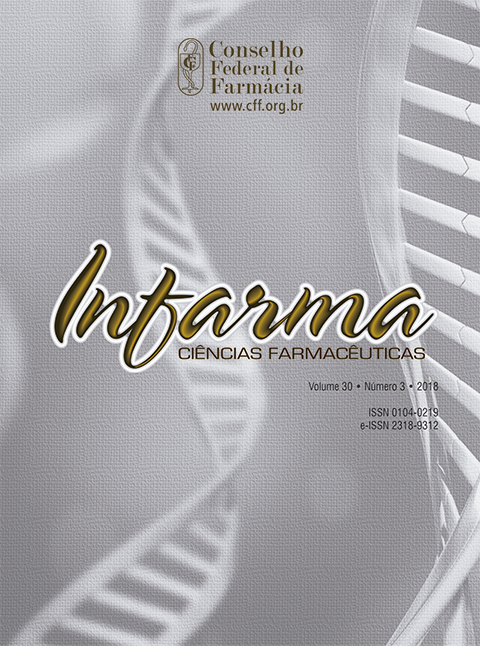INTERACTIONS AMONG MEDICINES UNDER SPECIAL CONTROL IN THE DISTRICT PHARMACY CENTRO IN PORTO ALEGRE, RS, BRAZIL
DOI:
https://doi.org/10.14450/2318-9312.v30.e3.a2018.pp146-151Keywords:
prescriptions, psychotropics, health center, pharmaceutical attention, riskAbstract
Polytherapy is a useful practice in the treatment of coexisting conditions or to enhance the pharmacological effect in less responsive conditions, but it presents a significant risk for drug interactions. Thus, the objective of this study was to identify in prescriptions issued by the Farmácia Distrital Centro in Porto Alegre, RS, possible drug interactions of medicines under special control and to classify them about potential drug interactions and degree of severity using the database MICROMEDEX®. After analyzing 2,839 prescriptions, the results showed that the majority of the patients were female and 75% of prescriptions presented some interaction. Out of 291 drug-drug associations analyzed. 44.4% gave a substantial risk of interaction, 23.9% moderate risk and 6.5% minor risk. Most of the strong-risk interactions showed cardiotoxicity as the main risk. The high frequency of interactions and the risk of toxic effects, also point to the need for an adequate information system on the use of medications as well as pharmaceutical guidance in these health facilities.
Downloads
Published
How to Cite
Issue
Section
License
Authors who publish in this journal agree to the following terms:
- Authors retain the copyright and grant the journal the right of first publication, with the work simultaneously licensed under the Licença Creative Commons Attribution which allows the sharing of work with acknowledgment of authorship and initial publication in this journal.
- Authors are authorized to take additional contracts separately, for non-exclusive distribution of the version of the work published in this journal (e.g. publish in institutional repository or as a book chapter), with acknowledgment of authorship and initial publication in this journal.
- Authors are allowed and encouraged to publish and distribute their work online (e.g. in institutional repositories or on their personal page) at any point before or during the editorial process, as this can generate productive changes as well as increase the impact and Citation of published work (See O Efeito do Acesso Livre ).


